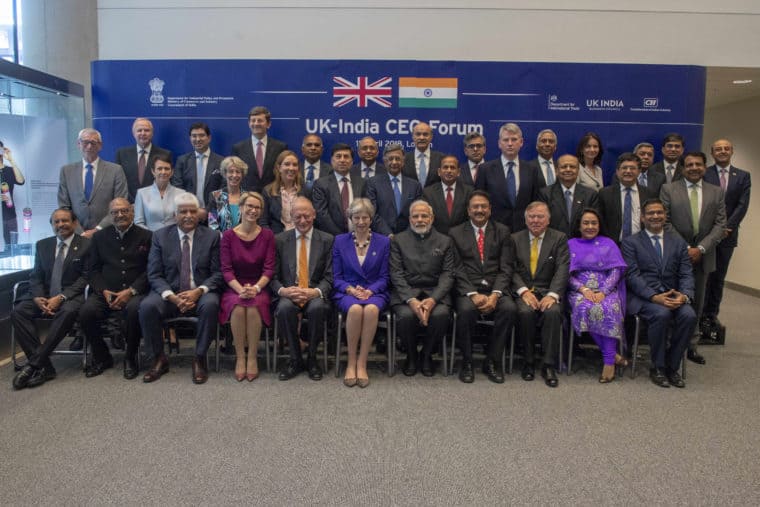Modi’s been, what does it mean?
There are certainly many positives to take from Mr Modis visit to the UK this month.

It is evident that there is an overarching strategy and shared commitment, as demonstrated by both Prime Ministers in their bilateral discussions and their joint statement that focused on enhancing the UK-India partnership in all areas of technology.
The Joint Statement released at the end of Modis trip was well received here at the UKIBC and is a great step in the right direction. The focus on technology is something we have long-advocated (link to innovation in the economy and recent innovation report) because of the complementarity and the economic benefits that will be brought to both countries.
At an event we held in London on 26 April to get the views of our members on the visit, the mood was also positive. On the panel were Mark Field MP, Minister of State at the FCO with responsibility for India and Patricia Hewitt, our former Chair and now Adviser to the UK Government’s Board of Trade.
Discussions at the event echoed the sentiment and ambition of the UK-India CEO Forum meeting attended by both PMs. That is, one of optimism and enthusiasm, particularly for two of the outcomes.
The first is the focus on technology collaborations, partly because there will be a mechanism to connect innovators from both countries, including the Tech Hub to support start-ups. And partly because of the focus on data protection, which is seen as an area where the UK and India could lead the world in terms of regulation.
The second area is the continued focus on the Joint Trade Review, which establishes a sector-based roadmap to reducing barriers to trade, paving the way for a potential future free trade agreement.
People at the event also recognised that, as well as a change in the substance of the discussion between the two countries, there has also been a shift in tone. We have moved from clichés about cricket, food and language and a starting point of ‘how can we maximise benefits for our own country?’, to that of ‘how can we utilise our complementary strengths and maximise benefits for both countries?’. This is a really positive step.
Nevertheless, alongside this positivity, it is also important to consider how to address some of the challenges, or perceived challenges, in the UK-India relationship. For example, despite the number of Indians coming to the UK to study growing by 28% last year and India receiving more UK work visas that every other country in the world combined, there is still a view that “The UK wants India’s money, but not its people”. And UK businesses remain concerned about the tax regime and IP protection in India.
So, all is not plain sailing. The real test, according to those at the 26 April event, is how the Governments implement the announcements made on 18 April and handle the thorny elements of the relationship. There was a strong view that the governments needed to focus hard on the follow-up – otherwise momentum may be lost and the intended benefits not realised, keep in mind the tremendous contribution businesses make to both countries, and be imaginative in dealing with challenges and barriers.
But how much bandwidth do the governments have? The next 12 months in India will be dominated by elections – Karnataka State elections are live now, more states are going to the polls in the Autumn, and the General Election is due by May next year. At the same time, and the UK Government is focussing on BREXIT. So it is unlikely that the UK-India relationship will be front of mind of our political leaders, despite this being the time when the two nations need each other most.
We would argue that much can happen without the constant focus on the Prime Ministers and their Cabinets. If used properly and in a co-ordinated way, the existing formal economic fora can advance the bilateral agenda. The CEO Forum, the Joint Economic and Trade Committee, the Joint Trade Review, the Economic and Financial Dialogue, and the India UK Financial Partnership all make important contributions. As do bilateral visits by junior ministers.
By ensuring all activities are co-ordinated and mutually re-enforcing, then much can be achieved by the time the UK and Indian Prime Ministers next meet.



